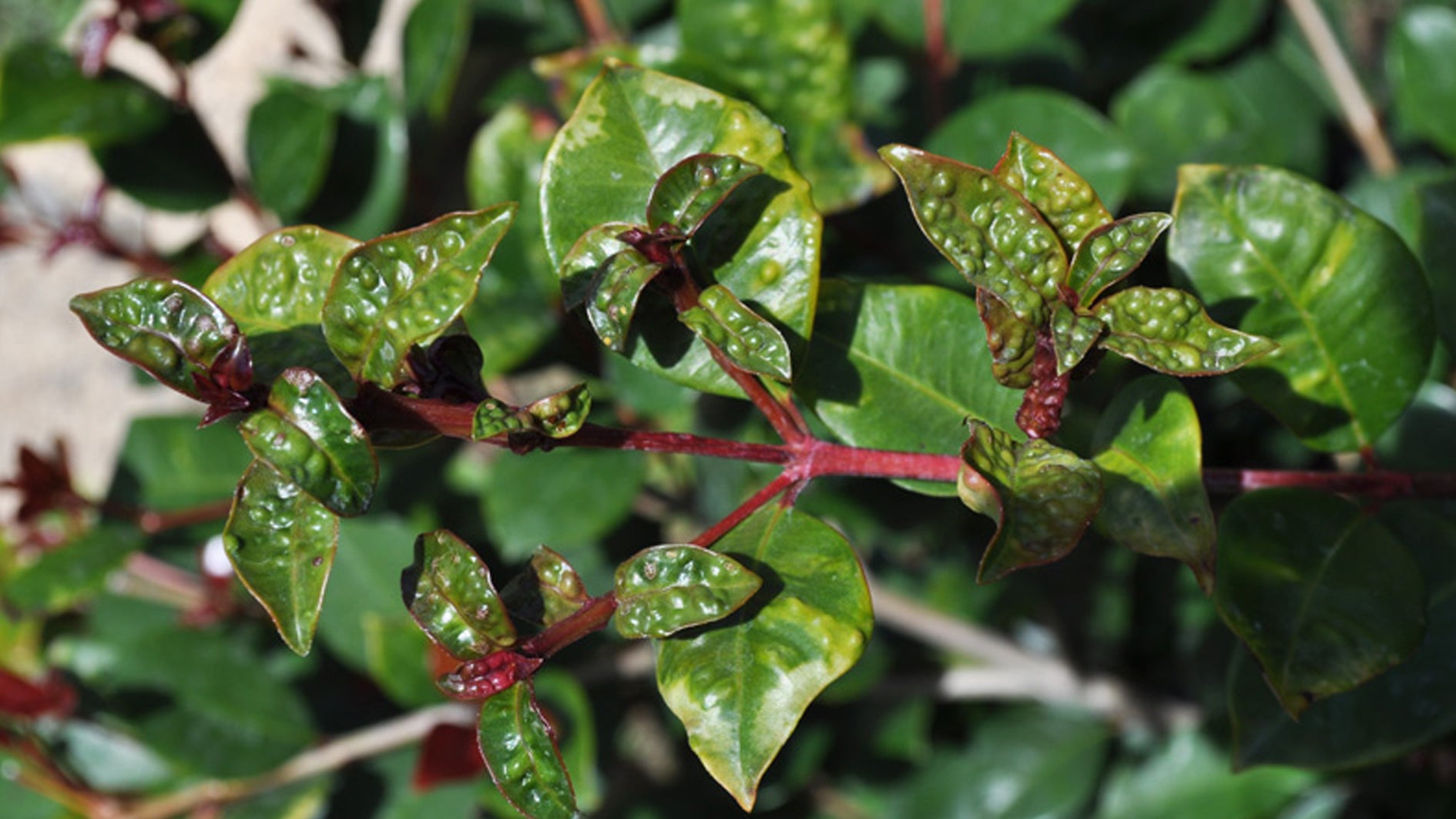
Eugenia Psyllids
16 Aug, 2021
Psyllids suck plant juices and excrete a sticky substance called honeydew on which black Sooty Mold grows. Severe infestations can cause major problems, though they usually occur when the plant is already stressed, often due to a lack of water.
High psyllid populations can reduce plant growth, cause leaves to distort, drop, become bumpy, or die back.
The damage is mainly aesthetic. However severe infestations can cause major problems, though they usually occur when the plant is already stressed, often due to a lack of water.
Similar pysllids (Trizoa spp) also affect other trees and hedges, including pittosporums.
Prevention
Psyllids like the fresh new red growth and this is the time they start to infest our plants.
Keep plants well watered and fed from Spring-Autumn to ensure they stay healthy. Stressed plants are more likely to get attacked by psyllids.
Regular pruning of new growth (the part Psyllids like) will keep Psyllid numbers down, this is also the only way to remove damaged pitted leaves, no pesticide or other treatment will restore pitted foliage back to its healthy state. Consider pruning new growth tips at about 3-weekly intervals throughout periods of growth or as long as adult psyllids are present.
Natural Treatment
Spray hedges at the start of spring (as soon as new growth emerges) thoroughly Enspray99 Oil to help keep numbers down. Repeat at 7 day intervals depending on the size of infestation.
Prevention is often better than cure, start spraying as soon as new growth appears.
Other Treatment
Spray hedges at the start of spring (as soon as new growth emerges) thoroughly with Groventive Garden and BioNeem combined together to help keep numbers down. Repeat at 14-28 day intervals depending on the size of infestation.
When using sprays and chemicals always read the label and follow instructions carefully. Spray in the evening to avoid harming beneficial insects.